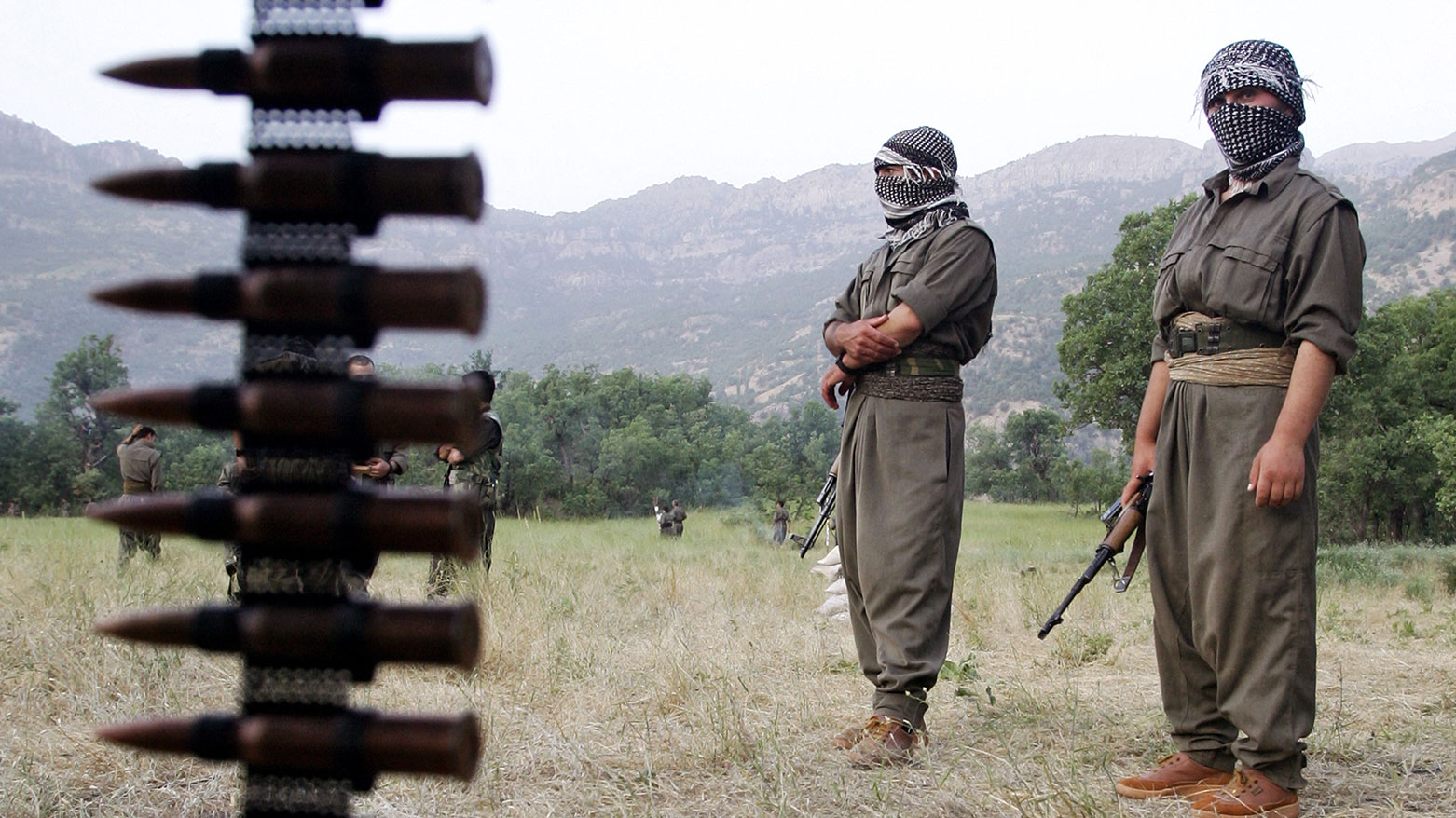PKK: Disarmament Conditional on Ocalan’s Freedom
Responding to the statement, Ömer Çelik, spokesperson for the ruling AK Party, reaffirmed the government’s position that all terrorist organizations must unconditionally lay down arms.

By Ahora Qadi
ERBIL (Kurdistan24) – The Kurdistan Communities Union (KCK) declared Tuesday that the Kurdistan Workers’ Party (PKK) will not proceed with disarmament unless Turkey takes serious legal steps to release its jailed leader, Abdullah Ocalan. The statement marks a renewed assertion of Ocalan’s central role in any future peace process.
In a televised interview on May 27, Besê Hozat, co-chair of the KCK Executive Council, stated that the PKK’s disarmament cannot be implemented without a legally binding framework that ensures Ocalan’s full freedom and enables him to actively guide the peace process.
“There can be no meaningful disarmament or withdrawal process unless there is legal and judicial ground for Abdullah Ocalan to operate freely,” Hozat emphasized, describing the Turkish government’s approach as insincere. “The Turkish authorities are not serious; they are merely buying time.”
Conditions for Disarmament
Hozat stressed the necessity of constitutional reforms that recognize the rights and identity of all citizens. “Turkey needs a democratic constitution that embraces the identities of all its people,” she said.
She further warned that unless Ocalan is able to lead the process himself, the disarmament of the PKK would remain theoretical and unenforceable.
Her remarks come amid continued speculation about renewed dialogue and political recalibration in Ankara, but the KCK co-chair was clear: symbolic gestures will not suffice.
Turkish Government’s Response
Responding to the statement, Ömer Çelik, spokesperson for the ruling AK Party, reaffirmed the government’s position that all terrorist organizations must unconditionally lay down arms.
“We’ve made our position clear: these groups must completely disarm,” Çelik said in a statement to the press, reiterating Turkey’s stance on the PKK and affiliated organizations.
Çelik also indicated that discussions with Baghdad regarding the group’s activities inside Iraq remain ongoing. “We are maintaining close coordination with Baghdad, Erbil, and Sulaimani on several key issues,” he stated, hinting at recent progress in trilateral talks.
Dialogue or Stalemate?
While both Ankara and the PKK acknowledge that conditions in the region are shifting, fundamental disagreements remain over the process and prerequisites for peace. The Turkish side insists on unconditional demilitarization, while the KCK views Ocalan’s role as a non-negotiable component of any resolution.
With security and diplomatic dialogue continuing between Turkey and the Iraqi government, particularly on PKK activity within Iraq’s borders, the region watches closely to see whether the current political climate will create new openings — or further entrench the status quo.
Abdullah Ocalan has been imprisoned on İmralı Island since 1999. Despite being isolated for years, his political thought continues to shape the ideological framework of the PKK and its affiliates across the region.
The debate over Ocalan’s status remains one of the most contentious elements in the PKK-Turkish conflict. Both sides appear to be signaling readiness for dialogue — but remain locked in fundamentally different visions of peace.
